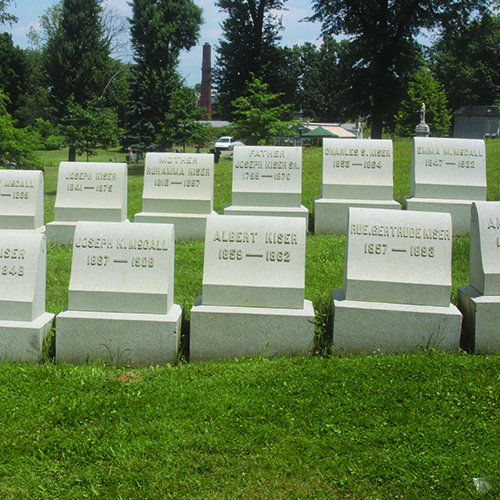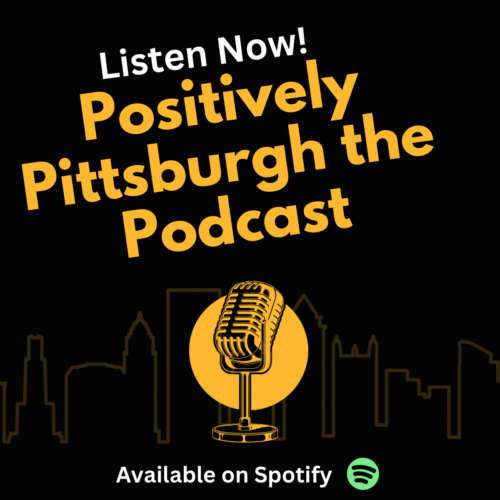Sustainability has become a major discussion point in recent years, with the increased conversation surrounding climate change and its effect on the world. How do you define sustainability, and how has the understanding of sustainability changed in recent years?
Sustainability is defined as simultaneously prioritizing social equity, environmental responsibility, and economic prosperity. Many people have different impressions of what sustainability means, and there are people who use it just in the environmental context or just the economic context; but to be truly sustainable, you have to consider all three elements at once. In short, sustainability is a thoughtful consideration of all the elements required to build a community to last.
How did you first become involved with environmental causes? What was the path that lead you to your current position as Executive Director of Sustainable Pittsburgh?
My Dad is a retired science teacher. So, I went on quite a few backyard expeditions and in-the-woods field trips as a kid. I don’t know if that’s where it started for me, but there has always been a thread of caring about the natural world. Not for a touchy-feely reason, but because of common sense; conservation makes sense for the same reason we teach our kids to clean their rooms: as it turns out, our fate is linked to the fate of others and the ecosystems of which we are part.
I got my parents to start recycling in middle school, back before the small town I grew up in had curbside pick up, and I co-founded my high school’s Earth club. Given all this, it’s probably not surprising that I went into the sciences! I still find biology, especially, fascinating, by the way. But I quickly realized that what I found most rewarding was not just understanding how things work, but in making that information useful, in helping people. I started working in informal science education, recognizing that the world needs more people with technical understanding who can also communicate, to do so.
As climate change has become more and more evident, and the science communication challenges around it have become more obvious, I’ve gravitated towards several roles in sustainability leadership that grapple with this and other urgent challenges. My role as executive director of Sustainable Pittsburgh is the latest. It’s very exciting to be leading the organization into its next chapter.
How have your past experiences (studying at MIT and Stanford, serving on the board of the Allegheny County Health Department, as well as working as associate director of science of research at the Carnegie Museum of Natural History) prepared you for your position at Sustainable Pittsburgh?
MIT and Stanford gave me an excellent skill set with which to tackle difficult problems and answer important questions. My role on the Allegheny County Board of Health has given me essential local context to understand this region’s challenges around, among other things: air quality, disparities, and also, critically, our complicated regulatory landscape. The Carnegie Museum of Natural History reconnected me to science, and the work around the Anthropocene was just ramping up when I arrived, so it was a good opportunity to become familiar with that framework with which to consider our sustainability challenges.
I’ve had a number of experiences over the years, whether working across the region doing outreach with PennFuture, leading Communitopia in its virtual and community-based climate education work, or even greeting visitors and answering phones in a United States Senate office two decades ago – and they’ve all given me valuable insight and understanding that I bring to my work now.
What do you believe is the largest impact that Sustainable Pittsburgh has made on the Pittsburgh region in the past 20 years?
Sustainable Pittsburgh’s most important role, I believe, has been as convener. None of our sustainability challenges are solvable in isolation, and so the function of bringing people together to share tools and information and create a workable path forward is both critically needed and is a longtime strength of the organization. Few organizations work with as many partners in as many sectors as Sustainable Pittsburgh, and I hope that we will be able to grow the capacity for this kind of work in the future.
There is sometimes a misconception that sustainability hinders economic development and profit. How is Sustainable Pittsburgh changing this narrative?
The question assumes sustainability is only an environmental consideration; it’s not. The word “sustainable” means “you can keep doing it for the long term.” The only way to achieve that for our communities is to promote economic development, environmental stewardship, and opportunity for all, at the same time. And as it turns out, there are many ways to accelerate economic development and environmental stewardship simultaneously. Sustainable Pittsburgh works to increase awareness of these possibilities with decision-makers, and we both host and champion projects, programs, and policies that give practitioners the tools to create this triple-bottom-line benefit.
What is a personal goal that you have for Sustainable Pittsburgh? How do you plan on accomplishing this?
One of many personal goals I have for Sustainable Pittsburgh is for all our programs to become as efficient and synergistic as possible – maximizing impact and being as easy as possible for participants. We’ve already done a lot of exciting behind-the-scenes work on this goal this year and are in the midst of a strategic planning process that should accelerate the progress. So stay tuned!
Sustainable Pittsburgh’s three pillars (1) economic prosperity, (2) social equity, and (3) environmental are the essence of its mission. However, it is an unfortunate reality that many people of color are restricted to living in areas without the security of clean air and water. How is Sustainable Pittsburgh ensuring that sustainability and a clean environment are available to everyone?
We work, deliberately, to make sure that the voices and concerns of all impacted communities are included in our coalition-building and networks. Racial disparities in environmental health, and so many other determinants of health, must be grappled with intentionally in order to build a sustainable future.
What can residents of Pittsburgh do to support the mission of Sustainable Pittsburgh?
Well, first and foremost, become a member of Sustainable Pittsburgh. For a full breakdown of membership levels and member benefits, please visit
www.sustainablepittsburgh.org/donate. Secondly, stay connected and aware of what’s happening in our region. Our
newsletter is a great way to do that. Find an organization whose sustainability mission speaks to you, and get involved by volunteering. Talk about these topics with those you know, and help raise the public awareness of some of the issues facing us today, here in Western Pennsylvania.







